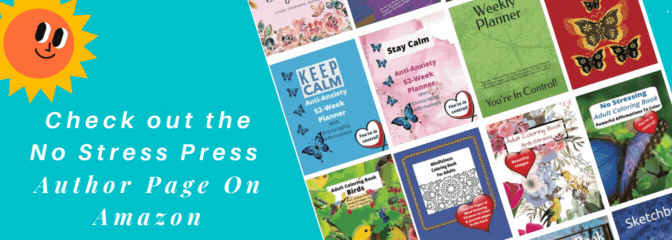Reasons Why Mindfulness Reduces Stress

“Every morning we are born again. What we do today is what matters most.”
Buddha

Sharon woke up feeling tense.
Sharon woke up in the morning feeling tense. “Wow,” she thought to herself. “I’ve had a full night’s sleep and I still feel uptight” she continued. Immediately the thoughts of the tasks to come began to swirl around in her mind. The more she sat there in her bed at 6:30 AM, the more the thoughts of what must be done gripped her. Overwhelmed, she reconciled that all she could do was accept that this was her life and that was that. Throughout her day she continued to go through the motions just as she always did, but today, for her, it seemed more intense. Sharon couldn’t remember the last time she felt completely free if she ever did. Sharon didn’t want to become depressed, so she began doing searches on the Internet for ways to beat stress naturally. She wasn’t looking for a “quick fix’ she was looking for a way to change the way she felt each morning.
Get Tips & Ideas
Quarterly Newsletter March, June, September & December
Adult Coloring Is Therapeutic
Sharon searched the Internet.
After about 20 minutes of searching she stumbled upon and article on NIH.gov that talked about the benefits of something called mindfulness. According to the article, and Dr. Margaret Chesney of the University of California, San Francisco the value of mindfulness is that it is accessible and can be helpful to so many people. The article goes on to talk about studies that suggest that mindfulness practices may help people manage stress, cope better with serious illness and reduce anxiety and depression. Additionally, many individuals who practice mindfulness describe an increased ability to relax, a bigger enthusiasm for life and boosted self-esteem.
A NIH-supported study actually found a link between mindfulness meditation and measurable changes in the brain regions involved in memory, learning and emotion. An additional NIH-funded researcher described that mindfulness practices may be able reduce anxiety and hostility in urban youth and lead to reduced stress, less fights, and improved relationships.
Mindfulness encourages us to pay attention to our thoughts, actions, and bodies. For example, studies have shown that mindfulness can help people achieve and maintain a healthy weight. “It is so common for people to watch TV and eat snack food out of the box without really attending to how much they are eating,” says Chesney. “With mindful eating, you eat when you’re hungry, focus on each bite, enjoy your food more and stop when you’re full.”
Mindfulness when eating means you are paying attention to how you feel when you eat, instead of surfing the Internet, watching TV, or even using your smartphone. Mindfulness while eating reduces the amount of weight we gain because we’re now listening to ourselves in that very moment. We’re savoring each bite and acknowledge when enough is enough.
Here are some mindfulness best practices.
The National Institutes of Health website says, becoming a more mindful person requires commitment and practice. Here are some best practices that may help.
- Take some deep breaths. (Please note that when you’re taking multiple deep breaths make sure you’re in a safe position in case you become dizzy.) Breathe in through your nose to a count of 4, hold for 1 second and then exhale through the mouth to a count of 5. Repeat often.
- Enjoy a stroll. Sometimes, using your step counter on your phone while in your living or bedroom is a good start. As you walk, notice your breath and the sights and sounds around you. As thoughts and worries enter your mind, note them but then return to the present.
- Practice mindful eating. As stated earlier in the post, mindful eating is very important. Be aware of taste, textures, and flavors in each bite, and listen to your body when you are hungry and full.
- Be aware of your body. Mentally scan your body from head to toe. Bring your attention to how each part feels.
Adult Coloring is another way to reduce stress.
Adult coloring is scientifically proven to relieve stress. The relaxation that it provides lowers the activity of the amygdala, a basic part of our brain involved in controlling the emotion that is affected by stress.”. In simplest terms, coloring has a de-stressing effect because when we focus on a particular activity, we focus on it and not on our worries.
- Become mindful of the gift of the present.
- Reduce negative and unwanted thoughts.
- Explore your own creativity.
- Reduce social media and blue light consumption.
A Special Word About Gratitude
Gratitude lowers stress thereby lowering the levels of cortisol and adrenaline the adrenal glands produce. In a study conducted by Kyeong Sunghyon and associates on the effects of gratitude meditation on heart rate, it was found to lower heart rate.
Writing thoughts of gratitude and appreciation on paper also offered a better mental outcome over an initial 4 weeks and 12 weeks after the study’s conclusion according to the study done by the Joel Wong and associates.
Gratitude increases mental strength. For years, research has shown gratitude not only reduces stress, but it may also play a major role in overcoming trauma. A 2006 study published in Behavior Research and Therapy found that Vietnam War veterans with higher levels of gratitude experienced lower rates of post-traumatic stress disorder. A 2003 study published in the Journal of Personality and Social Psychology found that gratitude was a major contributor to resilience following the terrorist attacks on September 11. Recognizing all that you must be thankful for —even during the worst times—fosters resilience.


Conclusion
When you lower stress, you lower your body’s fight or flight response. That response includes chemicals produced in the adrenal glands called cortisol and adrenaline. These chemicals are short-term responders to environmental stress. If you stay in a stressed state your body becomes desensitized to the effects of the chemicals. Chronic stress makes people more susceptible to illness. Gratitude has been clinically shown to reduce cortisol, thereby reducing inflammation, heart rate and blood pressure.
Remember, no one thing is going to bring wholeness. We must dedicate ourselves to loving ourselves enough to pay attention to how we feel. Then we must make feeling better about ourselves the most important thing we do!
Thank you for reading this post!
Be blessed!
Thousands of satisfied users!
Support Stress Relief: Feel more in control of your life and don't let worries and tension get in the way. Our happy pills promote an overall calming effect and help inhibit cortisol release to help you relax after a long day.
*Please consult your physician.
Auto Amazon Links: No products found.


